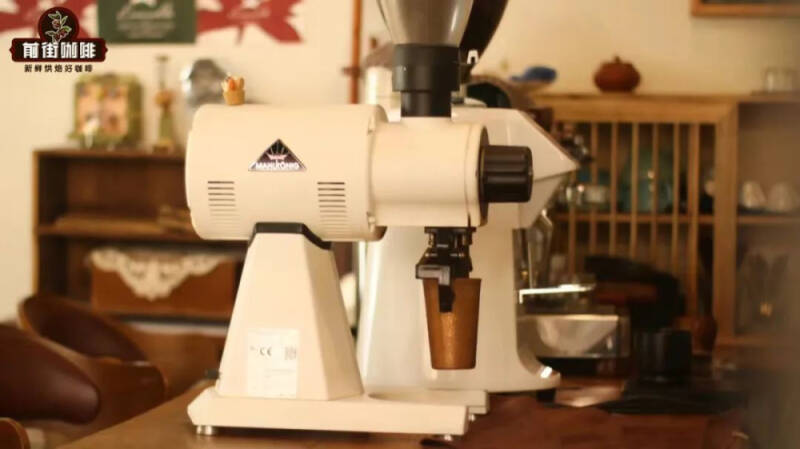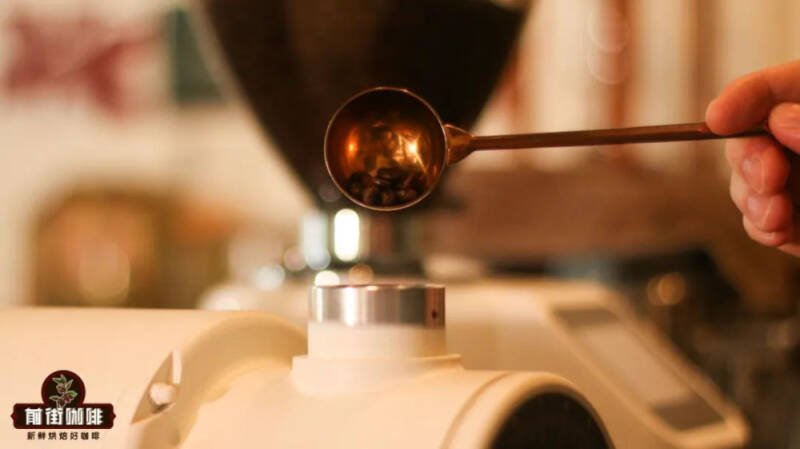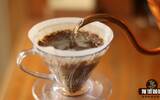Why do I need to wash and grind before making coffee? How to clean the bean grinder? Will it smell when making coffee by hand without washing and grinding it?
"washing", as the name implies, is an act of cleaning the bean grinder. In order to make the bean grinder have a longer service life, we clean it deeply every once in a while to ensure that its cutterhead and other parts are not affected by external dirt.

However, cleaning is not the only type of "washing". Every time we grind coffee beans used for making coffee, we also need to carry out a washing process, which is a point that many old masters will emphasize when bringing novice rookies. So the question is, what is the difference between washing and grinding before grinding coffee powder and regular cleaning?
Why should coffee beans be washed before they are ground? We often talk about washing beans before grinding, in fact, it is not to use professional cleaning tools to take apart the bean grinder, but to put several coffee beans into grinding, so as to achieve the effect of "washing and grinding"! And such a way of washing and grinding can make our hand-made coffee tastier and purer!

The biggest advantage of cleaning up the residual coffee powder is to clean up the coffee powder residue hidden in the bean grinder! When a coffee bean is ground into coffee powder by a bean grinder, not all the particles will fall from the outlet of the bean grinder, and a small number of fine particles may be adsorbed on the knife head due to static electricity, or left in the gap of the knife head, in the blank space of the bean grinder.
If we don't clean up the particles, they will be added to the next ground coffee powder. It will not only make a difference in extraction to the next coffee powder, but also make the taste of the freshly ground coffee less pure. So we need to use a few beans "in the same batch" with the coffee beans to be ground to act as a cleaner to bring out the coffee powder left in the machine! This is the "washing and grinding" before grinding beans.
But! The use of these coffee beans as cleaners is not small, and there is a small chance that they will not be able to bring out the coffee powder left in the corner, which will not have any effect. Therefore, the recommended amount of beans in Qianjie is 1 g, or 4-5 beans. Although this will be very unfriendly to the wallet, it can ensure that the taste of the final extracted coffee will not be affected by other flavors. Many friends may think that air blowing can also blow the coffee powder residue out of the bean grinder, why not wash it with air blowing, isn't it more convenient and money-saving?
The answer is very simple, because most of the time, what is left in the coffee machine is not just coffee powder!
Remove grease and taste in order to taste more different delicacies, we will use different coffee beans for brewing and extraction. On the other hand, the coffee beans themselves will carry oil, especially those that are moderately roasted upward (deep) and will hold more oil. So when we are grinding, if the grease is stuck to the cutter head, it will be the object that cannot be blown away by air.
Yesterday's Qianjie article mentioned that the oil will carry part of the flavor of the coffee bean itself. So, if we don't clean it up, when the next coffee bean is ground, the oil attached to the cutter will be transferred to the freshly ground coffee powder, deviating the taste of the extracted coffee. Although it may be a better experience, I believe most people would prefer to experience the original and purest single taste of coffee beans. Therefore, in order to prevent this situation, we still need to use coffee beans to wash before grinding to reduce the generation of these variables.
However, this kind of washing and grinding can not clean the bean grinder as a whole, but only reduce the variables that may be produced by the current cooking. Therefore, we still need to clean the bean grinder regularly, do not confuse the two ~ (on how to wash, you can go to this article to learn about the cleaning of the bean grinder)
-END-
Important Notice :
前街咖啡 FrontStreet Coffee has moved to new addredd:
FrontStreet Coffee Address: 315,Donghua East Road,GuangZhou
Tel:020 38364473
- Prev

How to taste the aftertaste of hand-brewed coffee? Why is Italian concentrated oil so fragrant? What is the coffee tasting process?
We will taste a cup of coffee from many angles, such as aroma, taste, taste, aftertaste, etc. In fact, it's not just coffee, but also for other drinks (tea, wine). However, many friends may focus their tasting on the perception of aroma and flavor, completely ignoring the experience of aftertaste. However, they don't know that aftertaste is important.
- Next

Can coffee beans be brewed casually if they are of good quality? Why should we pay attention to water injection when making coffee by hand? What is the difference between large and small water currents?
In order to enhance communication with guests and friends, most coffee shops make hand-brewed coffee in an open and on-site manner. This led to a certain amount of incomprehension when the barista was focused on injecting water. Because there is a saying circulating in the industry: As long as the beans are good, no matter how you brew, coffee
Related
- What grade does Jamaica Blue Mountain No. 1 coffee belong to and how to drink it better? What is the highest grade of Blue Mountain coffee for coffee aristocrats?
- What are the flavor characteristics of the world-famous coffee Blue Mountain No. 1 Golden Mantelin? What are the characteristics of deep-roasted bitter coffee?
- Can I make coffee a second time in an Italian hand-brewed mocha pot? Why can't coffee be brewed several times like tea leaves?
- Hand-brewed coffee flows with a knife and a tornado. How to brew it? What is the proportion of grinding water and water temperature divided into?
- What is the difference between Indonesian Sumatra Mantinin coffee and gold Mantinin? How to distinguish between real and fake golden Mantelin coffee?
- What does bypass mean in coffee? Why can hand-brewed coffee and water make it better?
- Unexpected! Ruixing Telunsu lattes use a smoothie machine to foam milk?!
- % Arabia's first store in Henan opens into the village?! Netizen: Thought it was P's
- Does an authentic standard mocha coffee recipe use chocolate sauce or powder? Mocha Latte/Dirty Coffee/Salty Mocha Coffee Recipe Share!
- What is the difference between Vietnam egg coffee and Norway egg coffee? Hand-brewed single product coffee filter paper filter cloth filter flat solution!

